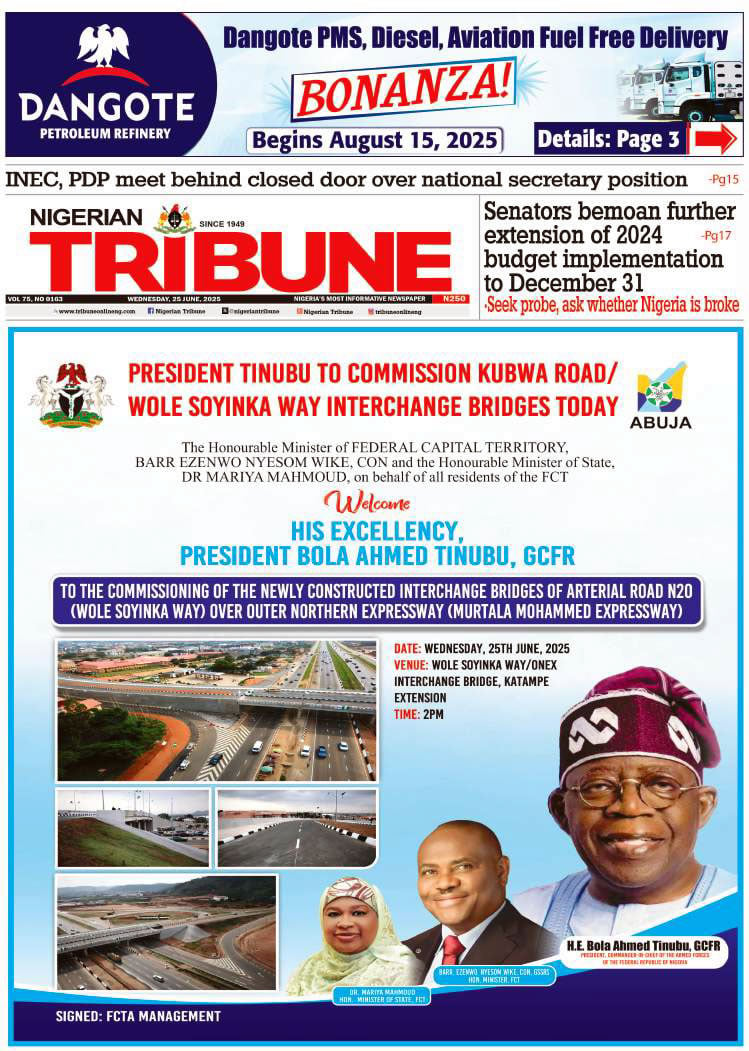Recently, the human rights watchdog, Amnesty International, released a report accusing the Nigerian military of bias and failing to contain farmers/herders clashes. The Federal Government has rejected the report. What is your reaction to it?
I am worried about the report. The herdsmen’s crisis is getting out of hand. Our people are being kidnapped and killed. People have been kidnapped in Ondo, Ekiti and Osun but surprisingly, our own governors have not said anything about the killings. In Ondo, a polytechnic lecturer was kidnapped and killed. In Ekiti, lawyers were kidnapped and killed and in Osun some workers were kidnapped. But the political class has carrried on as if nothing is amiss.
But under former Governor Ayo Fayose, Ekiti State passed a law criminalising open grazing. What is happening now?
I don’t know, but this is the right time to draw the attention of Governor Kayode Fayemi to that law. The speaker of the state House of Assembly should make sure that the law comes alive. The state government must wake up the law and implement it because human lives are involved. I am particularly worried that with the killings going on, the two leading candidates in the 2019 presidential election, namely President Muhammadu Buhari and Alhaji Atiku Abubakar, have not seen the need to speak out on the herdsmen’s crisis. A number of our governors are in the campaign council of President Buhari but they have not drawn his attention to the need to speak out on the menace of herdsmen who are killing our people and burning their farms. We cannot keep quiet on the matter because human lives are involved. We have said it over and over again that ranching is the modern way of pastoral farming.
Speaking of ranching, recently, the Federal Government reportedly gave Kaduna State N5 billion for ranching, but this move drew criticisms from Nigerians…
I also read the report and my reaction is the same. The Federal Government has no business giving money that belongs to all of us to a state to do ranching, which is a private business. It is a different thing if a state wants to do ranching and votes money for it.
Presidential spokesman, Garba Shehu, is in the news for saying that former President Goodluck Jonathan should be blamed for the government’s delay in choosing ministers, because handing over notes were given just 48 hours before that government left office. What is your reaction to that statement?
I expect his principal, President Buhari, to sanction him for that, because what he did went against the grain of what Buhari said recently, that he was not going to give excuses anymore. So, for his spokesman to come and start giving excuses that they (the government) were no given hand over notes as if they were not in Nigeria and as if there were not members of that government in their party is unfortunate and he should be sanctioned for that.
The PDP presidential candidate, Alhaji Atiku Abubakar, has said that if he is elected president, he will restructure Nigeria within six months and that he will revisit the report of the 2014 National Conference of which you served as secretary of the South-West delegation. Is it possible to restructure Nigeria within six months?
It depends on what he means by restructuring. As far as we are concerned, even at the conference, we envisaged a five-year period of transition because there are a lot of things that are fundamentally wrong with Nigeria. There are people who don’t want to be in the states they are in now.. Kaduna is an example: the Kaduna South people don’t want to remain there. Then, people are calling for states in other areas too, even in the North and ditto here. The Yoruba in Kogi and Kwara want to join their kith and kin in the South-West. So, when you are talking about comprehensive restructuring, it is a process that will not take less than five years.
What we believe mainly about restructuring is that federating units must exploit their resources, own their resources and pay a percentage to the centre. At the conference, we agreed that a sum of money should be set aside to help some states just for the transition period because you don’t start exploiting your resources and making money immediately. So, we appreciated that and knew it would take some time. Then, we set aside some funds to be given to states to explore and exploit the mineral resources in their domains.
Within what time frame?
Within the five-year period. You cannot decree restructuring: we are not in the military era. Then, human beings don’t change suddenly. There must be a period of gradual acclimatization to the new system. So, yes, I agree that Atiku wants to restructure and I want to emphasise that if he looks at the 2014 National Conference report, which I believe he ought to have looked at, our resolutions are grouped into three: the first can be achieved by mere executive orders. So I expect him to assure us that within six months of getting into office, he have looked at those ones and issued executive orders. Then, there is the next set of resolutions that need legislation. That would involve bills being sent to the National Assembly. The third set of resolutions are those that need constitutional amendment and for which a referendum will have to be held across the country. Some of us want concrete plans. Of course, out of the two leading candidates, one has told us that he has put the 2014 report in the archives.
We have the problem of massive hunger in the land. In March this year, the Brookings Institution rated Nigeria as the world’s headquarters of poverty. How do we solve this problem?
I have said it several times that we must de-monetise the political system. How do we do that? One, if you recall, the current Emir of Kano, Alhaji Lamido Sanusi, when he was Governor of the Central Bank, went to the National Assembly and told them that they were spending close to 20 or 25 per cent of the total recurrent expenditure of the country. That is an unfair system, and this is why I have defined this democracy as government of the tiny political leadership elite, by the tiny political leadership elite and for the tiny political leadership elite. The people are not factored in at all.
We spend about 75 per cent of our resources on recurrent expenditure, to service bureaucracy and the entire bureaucracy in Nigeria is under half a million. That is not a fair system. How much money do you have to do capital projects and to ensure that people get jobs? A Federal Government that has no land votes billions of naira for agriculture at the federal level.
Now this is what we are saying about restoration, I don’t like the word devolution; it gives the impression that the Federal Government is doing the federating units a favour. I prefer restoration of power back to the owners. Power belongs to the people and the people inhabit the states and the communities. Power must be restored back to the people who should own it.






